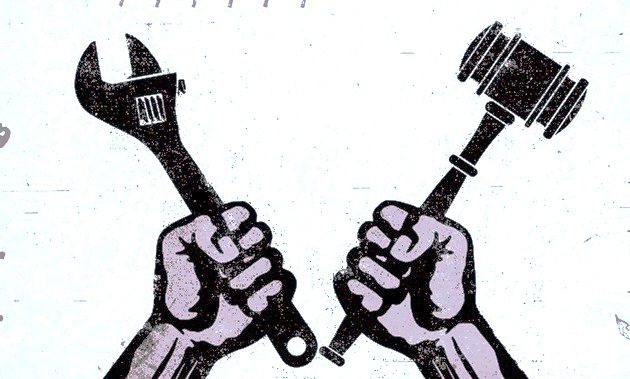Balancing of interests in labor law
Courts have the delicate task of balancing the interest between capital and labor. This is because labor is a primary social economic force and capital (the private sector) has an indispensable role in nation-building. If one is primary and the other is indispensable, as Azucena asks in his book on labor standards, how can courts resolve disputes between the two?
The answer is, as the first sentence above suggests, to balance their interests. There must be an attempt to create and maintain understanding and cooperation between the employer and the employee. One cannot be favored over the other for flimsy reasons; neither can one act oppressively against the other, as the New Civil Code commands.
The Constitution recognizes that the private sector plays an "indispensable" role, something the state cannot do without. At the same breath, labor is called a primary social economic force. Because one is "indispensable" and the other is "primary," how can it be said that one is more important, or deserves greater protection, than the other? Government, Bernas says, is the delicate art of balancing the power of government and the freedom of the governed. 2 So also, labor relations is the challenging task of balancing the rights and interests of the employer and the employee. The constitutional outlook suggests a balanced treatment of workers and employers. (Page 14 of Azucena's Labor Standards, 2013)
It is high time that employer and employee cease to view each other as adversaries and instead recognize that theirs is a symbiotic relationship, wherein they must rely on each other to ensure the success of the business. When they consider only their self- interests, and when they act with only their own benefit in mind, both parties suffer from short-sightedness, failing to realize that they both have a stake in the business.
The employer wants the business to succeed, considering the investment that has been made. The employee in turn, also wants the business to succeed, as continued employment means a living, and the chance to better one's lot in life.
It is clear then that they - capital and labor - both have the same goal, even if the benefit that results may be greater for one party than the other. If this becomes a source of conflict, there are various, more amicable means of settling disputes and of balancing interests that do not add fuel to the fire, and instead open avenues for understanding and cooperation between the employer and the employee. (G.R. No. 158786)
The answer is, as the first sentence above suggests, to balance their interests. There must be an attempt to create and maintain understanding and cooperation between the employer and the employee. One cannot be favored over the other for flimsy reasons; neither can one act oppressively against the other, as the New Civil Code commands.
The Constitution recognizes that the private sector plays an "indispensable" role, something the state cannot do without. At the same breath, labor is called a primary social economic force. Because one is "indispensable" and the other is "primary," how can it be said that one is more important, or deserves greater protection, than the other? Government, Bernas says, is the delicate art of balancing the power of government and the freedom of the governed. 2 So also, labor relations is the challenging task of balancing the rights and interests of the employer and the employee. The constitutional outlook suggests a balanced treatment of workers and employers. (Page 14 of Azucena's Labor Standards, 2013)
It is high time that employer and employee cease to view each other as adversaries and instead recognize that theirs is a symbiotic relationship, wherein they must rely on each other to ensure the success of the business. When they consider only their self- interests, and when they act with only their own benefit in mind, both parties suffer from short-sightedness, failing to realize that they both have a stake in the business.
The employer wants the business to succeed, considering the investment that has been made. The employee in turn, also wants the business to succeed, as continued employment means a living, and the chance to better one's lot in life.
It is clear then that they - capital and labor - both have the same goal, even if the benefit that results may be greater for one party than the other. If this becomes a source of conflict, there are various, more amicable means of settling disputes and of balancing interests that do not add fuel to the fire, and instead open avenues for understanding and cooperation between the employer and the employee. (G.R. No. 158786)




